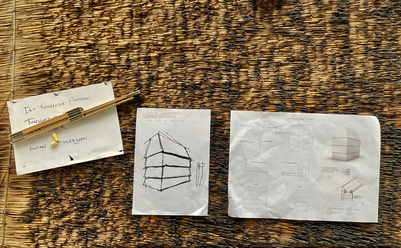New book: Planning the garden as a metaphor for change
How can the activity of gardening inspire the fashion industry and other industries to create systemic changes to practices that are presently harming the Earth?
In her new Book “Earth Logic Gardering” professor of Sustainable Fashion at the Royal Danish Academy, Kate Fletcher, uses practices of gardening to nurture urgent opportunities, practices and projects of change. By this, she suggests to open up a new space for imagining fashion outside the context of economic growth.
She and co-writer Professor Mathilda Tham states: “Earth Logic shares insights gained from the heart of a broken fashion system and the huge toll it takes on people and planet. In particular perhaps, the phenomenon of fast fashion demonstrates the danger posed by human-made systems when they lose touch with the reality of Earth’s limits and with the need for social justice … This kind of fashion is actually recent; in the same way that dependency on cars or industrial agriculture are recent phenomena. Such systems are made by humans. They can be remade.”
Earth Logic Gardening is a practical guide to seeding, growing, harvesting (and more) the work of change in ways that leave old priorities and frameworks behind. Drawing upon the metaphor and practice of gardening, Earth Logic Gardening is a guide to how to root work in local communities, recognise the many other beings that live and collaborate alongside us, pay attention to how we work.
The book shares nine accessible principles for making change happen from Paying Attention to the Soil to Sorting Out the Tool Shed to Fallowing, with real life examples.







